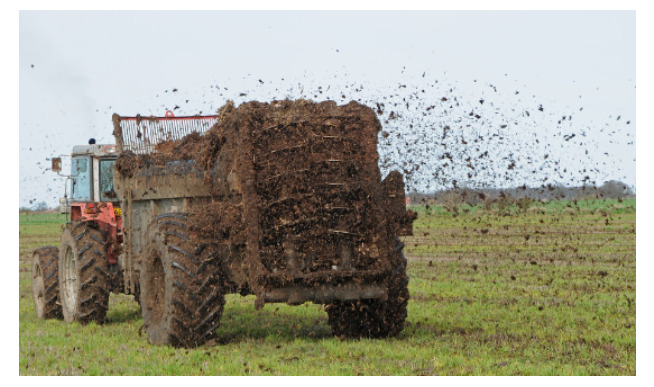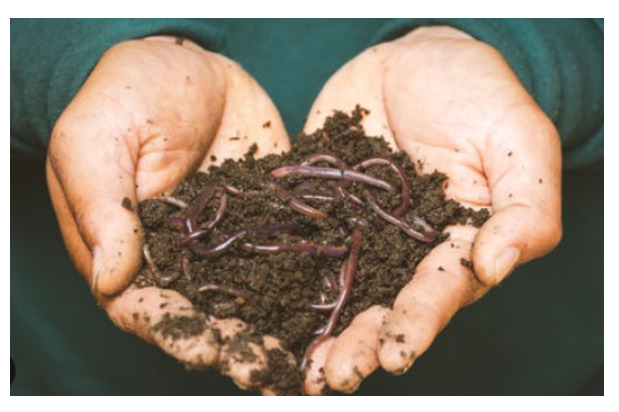Table of Contents
Introduction to Manure
Manure refers to organic matter derived from animal waste, such as dung, urine, and bedding materials. It is a natural and valuable source of nutrients for plants. Manure is rich in organic compounds, including nitrogen (N), phosphorus (P), and potassium (K), as well as other essential elements like calcium, magnesium, and micronutrients.
Manure can be obtained from various livestock animals, such as cows, horses, pigs, and poultry. It is often used as a soil amendment to improve soil fertility, structure, and moisture retention. Manure provides nutrients to plants gradually as it decomposes, enriching the soil and supporting plant growth over an extended period. Additionally, manure enhances soil microbial activity, which further benefits plant health.
Manure is organic matter that is used as a fertilizer to improve soil fertility and provide essential nutrients to plants. It is derived from the decomposition of animal waste, plant residues, and other organic materials.

Types of Manure
Animal Manure
This includes manure obtained from livestock animals such as cows, pigs, horses, sheep, and poultry. Animal manure is rich in nutrients like nitrogen, phosphorus, and potassium, which are essential for plant growth.
Green Manure
Green manure refers to the practice of incorporating fresh or dried plant material into the soil. It involves growing specific plants, such as legumes or cover crops, and then plowing or mulching them into the soil. Green manure adds organic matter, improves soil structure, and releases nutrients as it decomposes.
Compost
Compost is a type of manure produced through the controlled decomposition of organic matter, such as food scraps, yard waste, and plant residues. It undergoes a process called composting, where microorganisms break down the organic material into a nutrient-rich humus-like substance. Compost improves soil fertility, structure, and water-holding capacity.
Vermicompost
Vermicompost is produced by feeding organic waste materials to earthworms. The worms digest the organic matter, and their castings, known as vermicompost, are rich in nutrients and beneficial microorganisms. Vermicompost enhances soil fertility, improves nutrient availability, and promotes plant growth.

Sewage Sludge
Sewage sludge, also known as biosolids, is the residual material generated from wastewater treatment processes. It contains organic matter and nutrients, making it a potential source of fertilizer for agricultural or horticultural use. However, the use of sewage sludge as manure requires proper treatment to remove any contaminants or pathogens.
Farmyard Manure
Farmyard manure, also called FYM, is a mixture of animal dung, urine, bedding material, and crop residues. It is commonly used in traditional farming systems and provides a balanced mix of nutrients to the soil. FYM improves soil structure, adds organic matter, and enhances nutrient availability for plants.
Each type of manure has its own nutrient composition and benefits, and their suitability for different crops and soil types may vary. It is important to properly handle, store, and apply manure to maximize its benefits and minimize any potential environmental impacts.
Advantages of Manure
- Organic Matter and Soil Improvement: Manure is rich in organic matter, which improves soil structure, moisture retention, and aeration. It enhances the soil’s ability to hold water, preventing erosion, and promoting better root development.
- Slow Release of Nutrients: Manure releases nutrients gradually as it decomposes, providing a sustained and balanced supply of nutrients to plants over time. This slow release reduces the risk of nutrient leaching and ensures a more efficient utilization by plants.
- Soil Microbial Activity: Manure stimulates soil microbial activity, fostering a healthy soil ecosystem. Microorganisms break down organic matter, releasing nutrients and creating a favorable environment for beneficial soil organisms, improving overall soil health.
- Environmentally Friendly: Manure is a natural and renewable resource, contributing to sustainable agricultural practices. It helps recycle nutrients from animal waste and reduces the reliance on synthetic fertilisers. Properly managed manure also minimizes the risk of nutrient runoff, which can cause water pollution.
- Cost-effective: In many agricultural systems, manure can be obtained at lower or no cost, making it a cost-effective option for nutrient supplementation. Utilizing manure as a fertilizer reduces the need for purchasing commercial fertilisers, thereby lowering production costs.
Variable Nutrient Composition: The nutrient content of manure can vary depending on the animal species, diet, and management practices. This inconsistency makes it challenging to precisely determine and control the nutrient composition, potentially leading to imbalanced nutrient application and plant deficiencies.
Bulky and Difficult to Transport: Manure has a relatively low nutrient concentration, making it bulky and challenging to transport over long distances. The need for large quantities of manure to meet nutrient requirements can increase transportation costs and logistical challenges.
Potential Weed Seeds and Pathogens: Manure may contain weed seeds and pathogens, including bacteria, viruses, and parasites, which can pose risks to plant health. Improper handling or application of manure can lead to the spread of weeds or diseases, impacting crop yields and quality.
Odor and Environmental Concerns: Manure can produce strong odors, especially when not properly managed. The release of ammonia and other gases from manure can contribute to air pollution and unpleasant working conditions. If not appropriately handled, manure runoff can contaminate water bodies and cause water pollution.
Slow Release Rate: While the slow release of nutrients from manure is an advantage, it can also be a limitation in situations where immediate nutrient availability is required. Some crops may have high nutrient demands during specific growth stages, and manure may not provide nutrients quickly enough to meet those demands.
Frequently asked questions on Manure
What is manure?
Manure refers to organic matter, such as animal waste and plant residues, that is used as a natural fertilizer to improve soil fertility and provide essential nutrients for plant growth.
What are the types of manure?
There are several types of manure, including animal manure (from livestock), green manure (incorporation of plant material), compost (decomposed organic matter), vermicompost (produced by earthworms), sewage sludge (biosolids from wastewater treatment), and farmyard manure (mixture of animal dung, urine, and bedding material).
How is manure different from fertilizer?
Manure is derived from organic sources, such as animal waste and plant materials, while fertilizers are usually synthetic or chemically formulated products that contain specific nutrients for plant growth. Manure provides a slow-release of nutrients and also improves soil structure, while fertilizers provide concentrated nutrients.
How is manure beneficial for plants and soil?
Manure enriches the soil by adding organic matter, improving soil structure, enhancing water retention, and supplying essential nutrients. It promotes microbial activity, increases soil fertility, and helps sustain long-term soil health and productivity.
How should manure be applied to crops?
Manure should be properly decomposed and applied in a balanced manner, considering the nutrient requirements of the specific crop. It can be applied as a top dressing, incorporated into the soil, or used in combination with other fertilizers. Care should be taken to avoid overapplication, which can lead to nutrient imbalances or environmental issues.
Is manure safe for organic farming?
Yes, manure is a vital component of organic farming. It provides natural and sustainable nutrients to crops, supports soil health, and aligns with organic farming principles of minimizing synthetic inputs and promoting environmental sustainability.
What are the advantages of using manure as a fertilizer?
Some advantages of using manure as a fertilizer include its organic nature, nutrient richness, soil improvement properties, long-term impact on soil fertility, and its ability to promote beneficial microbial activity in the soil.
Can manure be harmful to the environment?
Improper storage, handling, or overapplication of manure can lead to environmental issues, such as nutrient runoff into water bodies, which can cause water pollution. However, when used responsibly and in accordance with best practices, manure can be a sustainable and environmentally friendly fertilizer.
How long does manure take to decompose?
The decomposition time for manure can vary depending on factors such as temperature, moisture content, and the type of manure. Generally, it can take several months to a year for manure to fully decompose and transform into nutrient-rich humus that can be readily utilized by plants.








